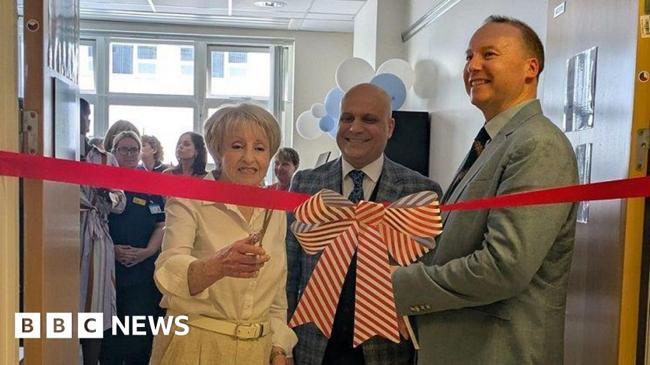Summary
Patients with severe intestinal failure will receive quicker treatment, following the opening of a new specialist unit at a hospital.
Source: BBC

AI News Q&A (Free Content)
Q1: What is intestinal failure, and how does it relate to nutrition deficiency?
A1: Intestinal failure occurs when the intestine cannot absorb enough nutrients, water, or electrolytes to sustain health and growth. This can result from conditions such as short bowel syndrome, which often leads to severe nutrition deficiencies due to impaired absorption. Patients frequently require specialized nutritional support, including parenteral nutrition, to prevent malnutrition and associated complications such as anemia and micronutrient deficiencies.
Q2: How does the new specialist unit at the hospital aim to improve outcomes for patients with intestinal failure?
A2: The new specialist unit provides multidisciplinary care, combining expertise from surgeons, gastroenterologists, dietitians, and nurses to deliver rapid and individualized treatment for intestinal failure. This approach facilitates quicker diagnosis, optimized nutrition therapy, and timely intervention, which are critical for preventing complications such as malnutrition and improving overall patient outcomes.
Q3: What are the current guidelines for addressing nutrition deficiency in patients with intestinal failure?
A3: Current guidelines emphasize individualized nutritional management, including tailored enteral and parenteral nutrition plans, regular monitoring of micronutrient status, and the use of specialized diets and supplements. These recommendations are designed to address the unique needs of patients with intestinal failure and reduce the risk of complications such as vitamin and mineral deficiencies.
Q4: What recent research has been conducted on micronutrient status in patients with short bowel syndrome who have been weaned off parenteral support?
A4: A recent study found that even after patients with short bowel syndrome are weaned off parenteral support, they remain at significant risk for micronutrient deficiencies. The research underscores the importance of ongoing monitoring and supplementation to prevent long-term complications, as deficiencies can persist despite the return to oral or enteral feeding.
Q5: What role do prebiotics, probiotics, and synbiotics play in the management of short bowel syndrome and associated nutrition deficiency?
A5: Emerging evidence suggests that prebiotics, probiotics, and synbiotics may help manage short bowel syndrome by modulating gut microbiota, improving nutrient absorption, and reducing bacterial overgrowth. However, clinical guidelines currently regard their use as experimental, with further research required to establish definitive protocols and safety profiles.
Q6: How are artificial intelligence and computer vision technologies being used to support diet management in patients at risk of nutrition deficiency?
A6: Innovative systems like NutriVision utilize computer vision and machine learning to identify food items, estimate portion sizes, and provide real-time nutritional analysis. These technologies support personalized dietary recommendations, helping patients with conditions like intestinal failure make informed choices and better manage their nutritional status.
Q7: What are the main complications of untreated nutrition deficiency in intestinal failure patients, and how can specialist care mitigate these risks?
A7: Untreated nutrition deficiency in intestinal failure patients can lead to severe complications, including anemia, bone disease, growth failure, impaired immunity, and organ dysfunction. Specialist care units mitigate these risks by providing comprehensive assessment, individualized nutrition plans, and close monitoring, ensuring deficiencies are promptly identified and addressed.
References:
- Short bowel syndrome - https://en.wikipedia.org/wiki/Short_bowel_syndrome
- Current treatment options for adult patients with short gut syndrome: Do prebiotics, probiotics, and synbiotics play a role?





